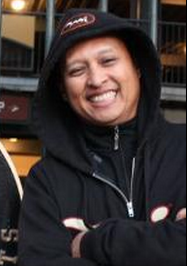SUMMARY
This is AI generated summarization, which may have errors. For context, always refer to the full article.
 Mike Ochosa is an athlete at heart. He is deeply involved in boxing as an analyst and practicioner, and runs Punchout Boxing Club. He is also Head Coach of Philippine Habagat, a youth baseball team that has competed internationally in the past 2 years. Read his blog or follow him on Twitter.
Mike Ochosa is an athlete at heart. He is deeply involved in boxing as an analyst and practicioner, and runs Punchout Boxing Club. He is also Head Coach of Philippine Habagat, a youth baseball team that has competed internationally in the past 2 years. Read his blog or follow him on Twitter.
It was no surprise that the World Baseball Classic Qualifying Tournament was topped by host country and powerhouse Taiwan.
Aside from Taiwan, the Philippines was in a bracket including New Zealand and Thailand, all of whom competed for a slot in the 2013 World Baseball Classic to be held in February 2013 at the ATT Park in San Francisco, California.
Although opening with an 8-2 victory over Thailand, the Philippines fell short with losses against Taiwan (16-0), and New Zealand (10-6).
It was an exciting opportunity for the country’s top ball players to be invited to play in this tournament. Core members of the team won the gold in the recent South East Asian Games, and reinforced by Filipinos who have been playing in various leagues in the United States and Japan.
Similarly, the coaching staff of Tata Empacis and Colbi Hidalgo were beefed up by the presence of American and Filipino coaches alike who have had Major League Baseball affiliations and experiences such as Jim Ramos, Billy Thomas and Billy Champion.
The glory days of Philippine baseball, if it is to be revived, need a new direction — a renewed spirit and much bigger aspirations.
But we still have a ways to go.
Below is a list of things that could help in overhauling baseball in the country:
Direction and strategy
This experience begs the question: ”What do we need to do to win this?”
They say in the 50s and the 60s the Japanese could never beat the Philippines in this game. The legend goes that as they kept on playing against Filipinos, they continued to take notes on how to get better in order to win.
Several years later, after they started beating the Philippines, they moved on and continued to dominate the game not only in Asia but also in the world.
A strategy with a workable timeframe must be set.
Recruitment
Many eyebrows were raised when the composition of this team was announced. It was a combination of locals or players who have been playing in the Philippines, and international players, Filipinos playing in the United States and Japan.
Given however the level of competition, adding players who have had exposure to this kind of play was a logical decision to make.
However, given more time to prepare, a recruitment process that supports the strategy could be better implemented. It would allow the proper identification of the correct skillset and player combination.

Time
Certainly, all this could only be done if there was more time. This team, to be fair to its management, was not given ample time to do all that was necessary.
Most decisions were “quick-fix” reactions to given situations and had to be made to ensure at least that a team could be sent.
Additionally, the more time spent by team members together prior to the tournament will form a bond that will help them play better as a team.
Teamwork and cohesiveness
Integral to competing internationally is not so much as the individual talents players bring but their ability to play as a team matters.
Baseball is a game of teamwork. Players must be able to trust not only in their own ability but also the skills of their teammates as well. It takes time to foster this trust. Each player needs to know how his teammates’ move, how fast they can run, how strong or weak their arms are, so that they can be of help to one another.
The Philippine team though, ladened with good players both local and foreign, were straining to play as one unit. They committed errors even trying to execute routine plays. The weakness of the Philippine nine was further revealed as New Zealand and Taiwan was very aggressive in every play.
Total commitment
The sport of baseball is a sport that Filipinos have excelled in and can again dominate. It is a game of speed more than height, a thinking game more than a game of brawn. To rebuild we must go back to basics.
Just being able to play in this tournament is a feat in itself. This experience opens up a relationship with Major League Baseball which has committed to expand and help the sport grow. We must not allow this chance to pass.
Not qualifying for the WBC in 2013 is not the end. Being able to participate in the qualifier is just the beginning. We must step up to the plate and be ready for the next pitch. – Rappler.com
Add a comment
How does this make you feel?





There are no comments yet. Add your comment to start the conversation.